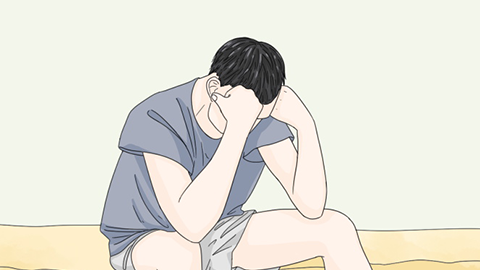What causes the disappearance of morning erections?
Generally, the main causes of the disappearance of morning erections include poor sleep quality, long-term overexertion, chronic prostatitis, hypertension, diabetes, and other conditions. If discomfort symptoms occur, it is recommended to seek timely diagnosis and treatment at a regular hospital. Detailed analysis is as follows:
1. Poor Sleep Quality
Long-term late-night habits, frequent dreams, and easy awakening can affect the hypothalamic-pituitary-gonadal axis, leading to disordered testosterone secretion and subsequently causing a decrease or disappearance of morning erections. It is important to maintain regular sleep schedules, establish fixed sleeping and waking times, avoid using electronic devices before bedtime, and improve sleep through activities like foot soaking and listening to light music, thus promoting the restoration of hormone secretion and improving morning erections.

2. Long-term Overexertion
Continuous engagement in heavy physical labor or high-intensity mental work, with the body and mind constantly in a state of fatigue, can suppress sympathetic nerve excitement, affect blood supply to the penile corpus cavernosum, leading to the disappearance of morning erections. It is necessary to arrange work and rest reasonably, avoid excessive exhaustion, ensure adequate rest time daily, and relax the body and mind through mild exercises like walking or yoga to relieve fatigue and restore morning erections.
3. Chronic Prostatitis
Infection of the prostate by pathogens such as bacteria or mycoplasma, or prolonged congestion, can cause chronic inflammation, which affects the blood circulation of the reproductive system and may also irritate surrounding nerves, leading to the disappearance of morning erections, often accompanied by symptoms such as frequent and urgent urination. Under a doctor's guidance, medications such as levofloxacin hydrochloride capsules, azithromycin dispersible tablets, and Qianlieshutong capsules can be used to combat infection, improve prostate circulation, and alleviate symptoms.
4. Hypertension
Hypertension subjects blood vessel walls to continuous pressure, leading to endothelial cell damage and arteriosclerosis. These changes can affect blood supply to the penile corpus cavernosum, preventing the penis from receiving sufficient blood to achieve a morning erection. Follow medical advice to use antihypertensive drugs such as nifedipine controlled-release tablets, amlodipine besylate tablets, hydrochlorothiazide tablets, etc., to control blood pressure. At the same time, attention should be paid to lifestyle adjustments such as a low-salt diet and moderate exercise.
5. Diabetes
Long-term hyperglycemia can damage nerves and blood vessels, leading to impaired nerve conduction and insufficient blood supply to the penile corpus cavernosum. These changes can affect sexual arousal transmission and erectile function, resulting in the disappearance of morning erections. It is important to control blood glucose levels and follow medical advice for using hypoglycemic drugs such as metformin hydrochloride tablets and gliclazide modified-release tablets. Additionally, lifestyle adjustments such as dietary control and moderate exercise should be emphasized.
In daily life, improving the sleep environment, maintaining regular sleep schedules, avoiding excessive excitement before bedtime, and consuming stimulant beverages should be avoided. If necessary, consult a doctor for sleep evaluation and treatment.







